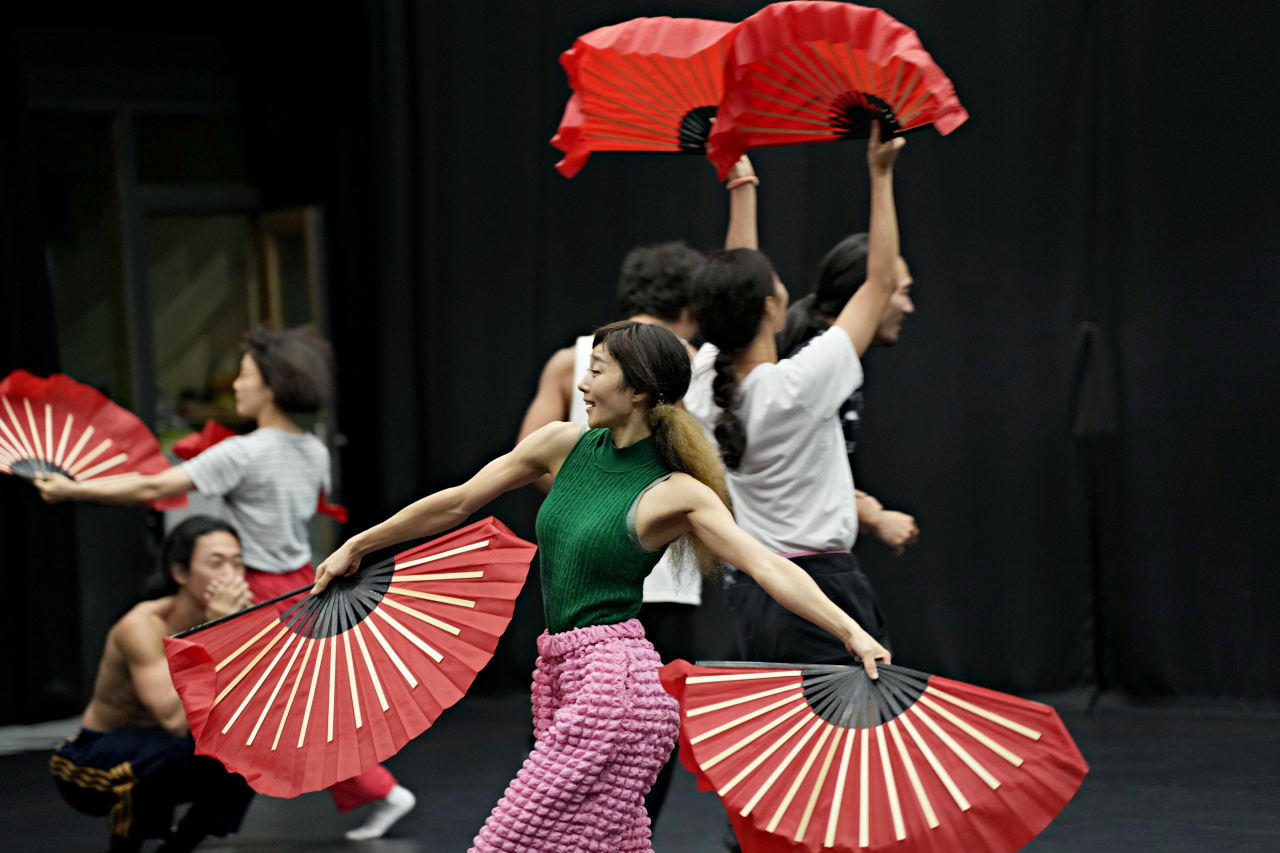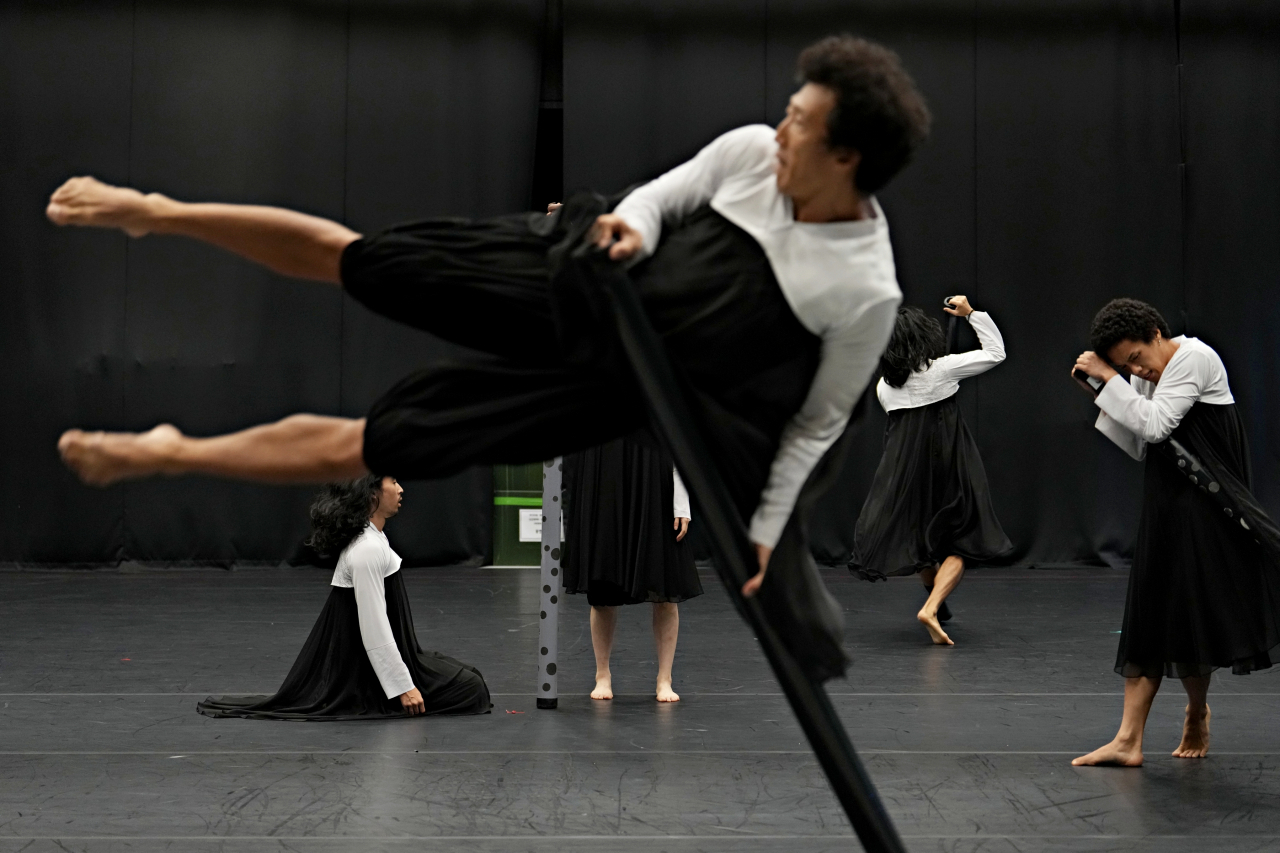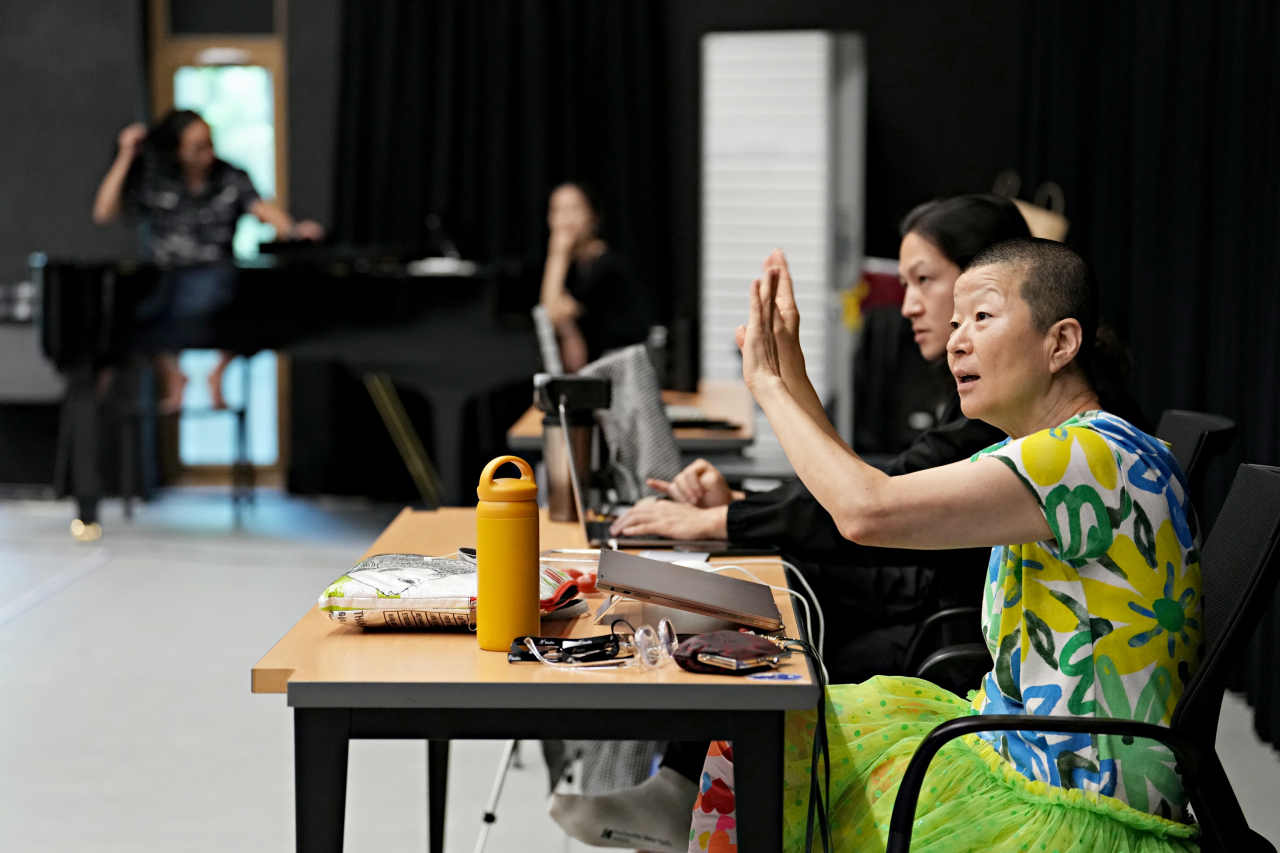[Herald Interview] 'Yojaya Yojaya,' Ahn Eun-me's ode to 'modern girls'
By Hwang Dong-heePublished : Aug. 17, 2023 - 17:00

A group of 12 dancers dressed in white jeogori, or the upper piece of a hanbok, paired with black skirts move tirelessly through the practice room. The sound of gunshots can be heard as dancers mimic shooting using long plastic pipes.
When the music quiets down, the dancers cast off their jeogori and put on vibrant red, yellow, green and blue skirts. Through a sequence of choreographed movements, they eventually discard the skirts as well, tossing them high into the air. The dancers then move gracefully in pairs, creating the ambiance of a cabaret.
The Korea National Contemporary Dance Company opened the doors of its practice room to the press on Aug. 8 for a rehearsal of Ahn Eun Me Dance Company’s latest production, "Yojaya Yojaya," which translates into "Woman Woman" in Korean. Choreographed by contemporary choreographer-dancer Ahn Eun-me, the piece is set to premiere at the National Theater of Korea’s Haneul Round Theater in Jung-gu, Aug. 24 and runs through Aug. 27.
During the roughly 20-minute practice session, scenes unfolded that portray women's participation in the independence movement during the Japanese colonial rule, their embrace of Western culture amidst the wind of change, and their liberation from Confucian traditions, each scene capturing a distinct moment in time.

Ahn has taken an anthropological approach to dance since her production "Dance Dedicated to Ancestors (2011)," in which she collected the rhythms and movements of older women. Her attention has extended to middle-aged men, to blind and disabled people, and to the sex life of elderly women.
Her focus has now shifted towards the concept of the "modern girl," which served as the inspiration for her latest piece, Ahn said in an interview after the rehearsal.
The term "modern girl" refers to educated women from the time of the opening of the ports starting in the 1880s up to the end of the Japanese colonial rule in 1945, according to the Academy of Korean Studies. Ahn extends this notion into modern history, shedding light on the role of women in shaping it.

“Modern girls were the trailblazers of a new civilization, opening new doors,” said Ahn. “Those who stepped through that doorway, willingly or not, navigated a turbulent era.”
There is no specific narrative in the piece, but the scenes vividly capture various images and moments: A woman who gets married at a young age, who struggles under the heavy load of labor, who goes to school, who cuts her hair short, who starts to wear short skirts and dance in a dance hall.
“There were women who demanded a dance hall be allowed in Seoul and others who were deceived by love and wept over money, or romantic souls who believed in love, and many nameless women who pioneered their own paths,” said Ahn.
“Modern times might feel distant, but the period is not too far in the past. Women of that era lived desperately. And looking into the intensity of their lives, I wanted to ask what kind of fiery perseverance we can uphold.”

The scene where the dancers throw off their clothing signals women's liberation from the constraints of the past. Although not originally planned, this movement emerged spontaneously during a rehearsal when Ahn saw the dancers undressing. She said the sense of liberation she felt from the dancers made her heart thump.
"This work is a tribute, a dance dedicated to those nameless women who lived fiercely," Ahn said.
Ahn also took charge of the stage and costume design. Her distinct aesthetic sensibility, characterized by vibrant and self-made everyday attire, will be showcased on the stage.
In addition, some quotes from women of the era that inspired Ahn will be interwoven as occasional background narrations. These excerpts will be translated into English and provided before the show.
The music is composed by Jang Young-gyu from the pansori-inspired alternative pop band Leenalchi, who has worked with Ahn for over 30 years.



















![[Today’s K-pop] Treasure to publish magazine for debut anniversary](http://res.heraldm.com/phpwas/restmb_idxmake.php?idx=642&simg=/content/image/2024/07/26/20240726050551_0.jpg&u=)